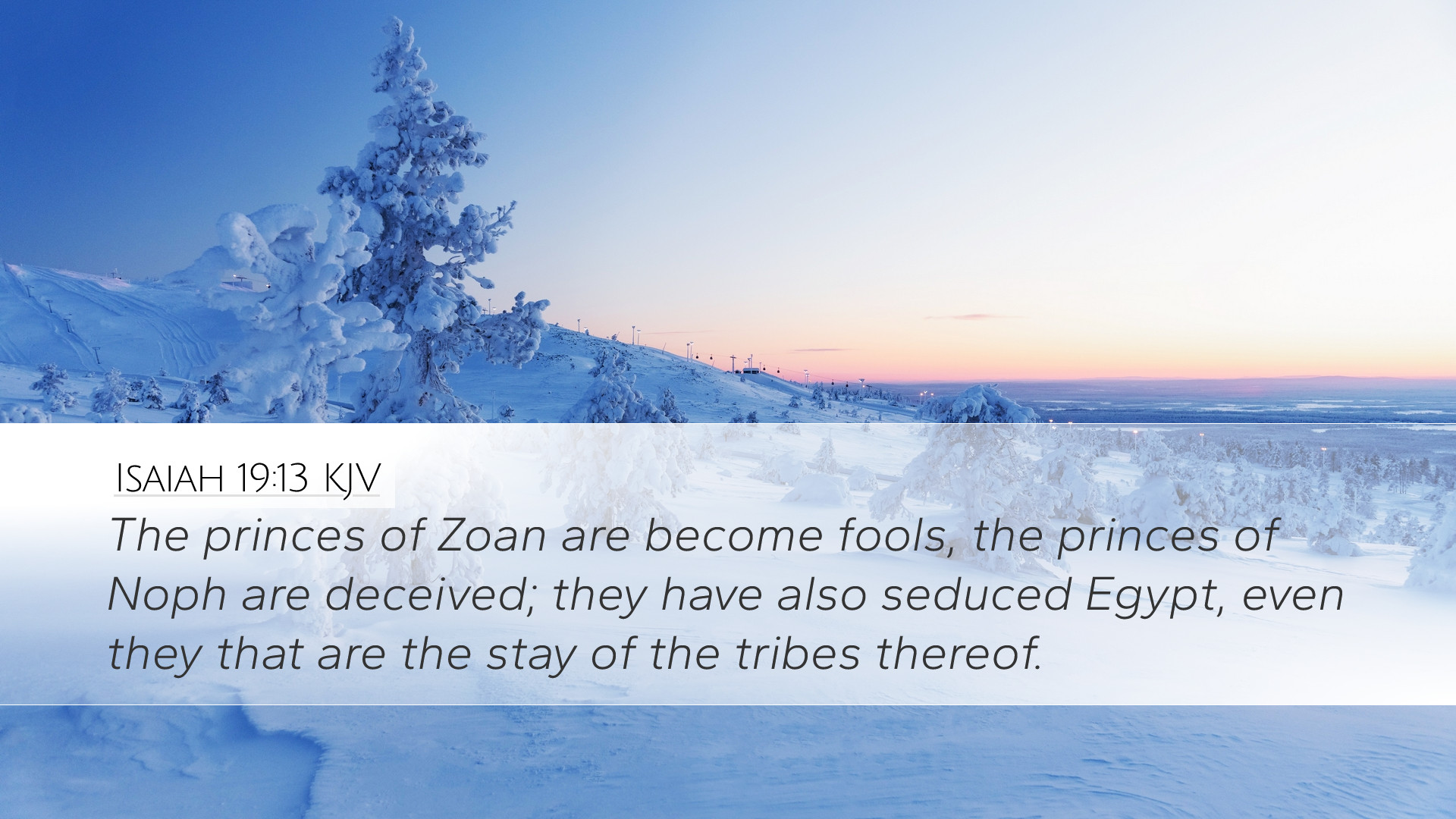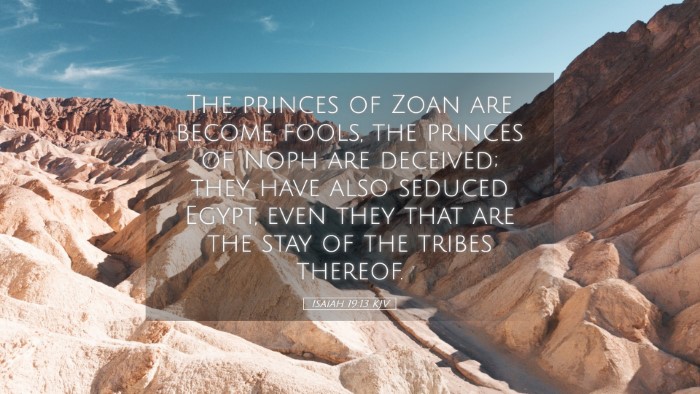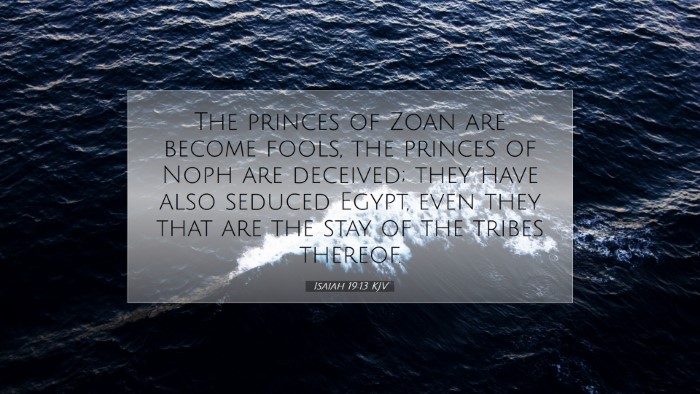Bible Commentary on Isaiah 19:13
Isaiah 19:13 (NKJV): "The princes of Zoan have become fools; The princes of Noph are deceived; They have also deluded Egypt, Those who are the mainstay of its tribes."
Contextual Overview
Isaiah 19 is a prophecy concerning Egypt, depicting a scenario of chaos and disillusionment among its leaders. The prophet Isaiah addresses the spiritual and political state of Egypt, emphasizing the folly that ensues from turning away from the wisdom of God.
Key Themes
- The Foolishness of Leadership: Isaiah points out the foolishness of the leaders in Zoan and Noph, highlighting their failure to provide wise counsel.
- Deception and Delusion: The princes of Egypt are described as being deceived, illustrating the vulnerability of political leaders who stray from divine guidance.
- Consequences of Rebellion: The passage serves as a warning about the outcomes of rejecting God's wisdom.
Commentary Insights
Matthew Henry's Commentary
Matthew Henry notes that the "princes of Zoan" and "princes of Noph" represent the significant centers of Egyptian power and wisdom. Henry asserts that their folly is not merely intellectual but stems from a deeper spiritual blindness. He elaborates that their reliance on human wisdom, devoid of divine insight, results in disastrous leadership, leading to an inability to effectively govern or protect their people.
Albert Barnes' Commentary
Albert Barnes elaborates that Zoan (modern-day San el-Hagar) was known for its sorcery and idolatry. He emphasizes how Egyptian leaders, who should have possessed wisdom and knowledge, are depicted as having become foolish. Their counsel, once respected, has turned to nonsense due to their idolatrous practices. Barnes suggests that the verse implies a broader divine judgment against the entire nation, as these leaders mislead the populace.
Adam Clarke's Commentary
Adam Clarke focuses on the geographical references of Zoan and Noph, explaining their historical significance. He contends that the rulers of these places were crucial to Egypt’s strength but have now succumbed to spiritual delusion. Clarke points out that this passage warns of the ultimate futility of worldly wisdom in the face of divine truth, encouraging believers to seek God's wisdom rather than relying solely on human intellect.
Theological Reflections
This verse serves as a sobering reminder for contemporary leaders—both religious and secular—that apart from divine insight, their governance can lead to ruin. The folly of the Egyptian leaders can be mirrored in today's societal structures where reliance on human wisdom often overshadows the need for divine guidance.
Application for Modern Leaders
- Seek Divine Wisdom: Leaders are encouraged to pursue godly wisdom in their decision-making processes.
- Recognize the Dangers of Deception: Acknowledging the potential for deception in leadership roles is imperative to maintain integrity.
- Repentance and Renewal: Just as Egypt needed to return to God, modern leaders are reminded of the importance of repentance for the healing of their communities.
Conclusion
The dire warning found in Isaiah 19:13 resonates through the ages. Leaders who forsake divine wisdom for human understanding risk leading their constituents into calamity. The commentary from respected theologians like Matthew Henry, Albert Barnes, and Adam Clarke collectively underscores the significance of grounding leadership in godly principles, which is a timeless lesson for pastors, students, theologians, and Bible scholars alike.


